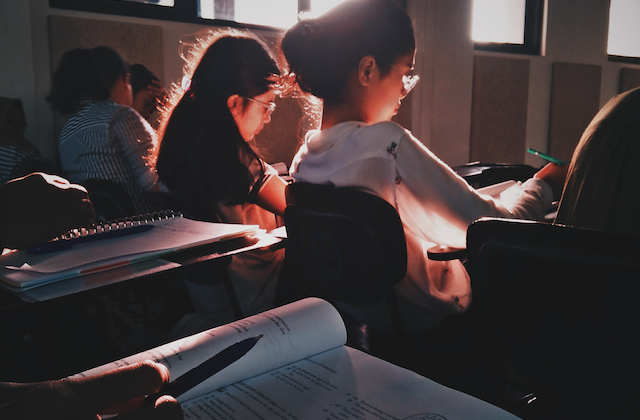What You Need to Know about Academic Integrity and Plagiarism

What is “academic integrity” and how does it affect you?
Have you ever used a quote in a paper or essay, but didn’t indicate its source? Have you ever prepared answers to an exam in advance and then brought them with you to help improve your grade? Have you ever copied responses from a classmate for a test? These are all examples of what US universities consider violations of academic integrity.
US colleges take academic integrity violations very seriously. Cheating, plagiarism and other similar violations are typically against the school’s code of conduct and could result in a failing grade, a formal letter of complaint in your disciplinary file or even get you removed from school. During orientation, new international students typically attend an academic integrity informational session and hear advice on avoiding plagiarism, as well as other similar issues.
What is an academic integrity violation?
Let’s take a look at the common types of academic conduct that are typically considered violations at US colleges. The following six categories come from the University of Colorado at Denver:
- Plagiarism – defined as stealing and passing off another person’s words or ideas as your own, without crediting the original source
- Cheating – copying from a classmate, bringing unauthorized aids or answers into a test or exam
- Fabrication and falsification – making up evidence or changing results to support an argument
- Multiple submissions – submitting a paper for a class where credit has been given in another class
- Misuse of academic materials – stealing or destroying library resources
- Complicity in academic dishonesty – contributing to another student’s academic dishonesty
Similar policies on academic integrity code at American University and Auburn University’s honesty code reflect the seriousness with which US colleges take this issue. At the University of Kansas, the division of Student Affairs has developed a simple academic integrity quiz as part of their code of conduct resources for students that clearly states what is right and what is a violation of policy. Many institutions have additional rules related to cheating and dishonesty for online courses.
Why is academic integrity and conduct important?
Kevin Beisser, Senior Immigration Coordinator at the University of Wisconsin-Milwaukee, cautions new students that “taking credit for someone else’s work, or cheating, will result in discipline ranging from failure of the course to permanent expulsion from the institution or system.”
“Two common American adages are the best advice I can give to students when it comes to academic integrity,” said Beisser. “The first is: ‘Honesty is the best policy’ and the second is: ‘When in doubt, ask questions.’”
Without asking questions, new international students may experience challenges when it comes to standard practices on writing a paper, quizzes, exams, project work and other collaborative academic work.
Explore international-friendly universities